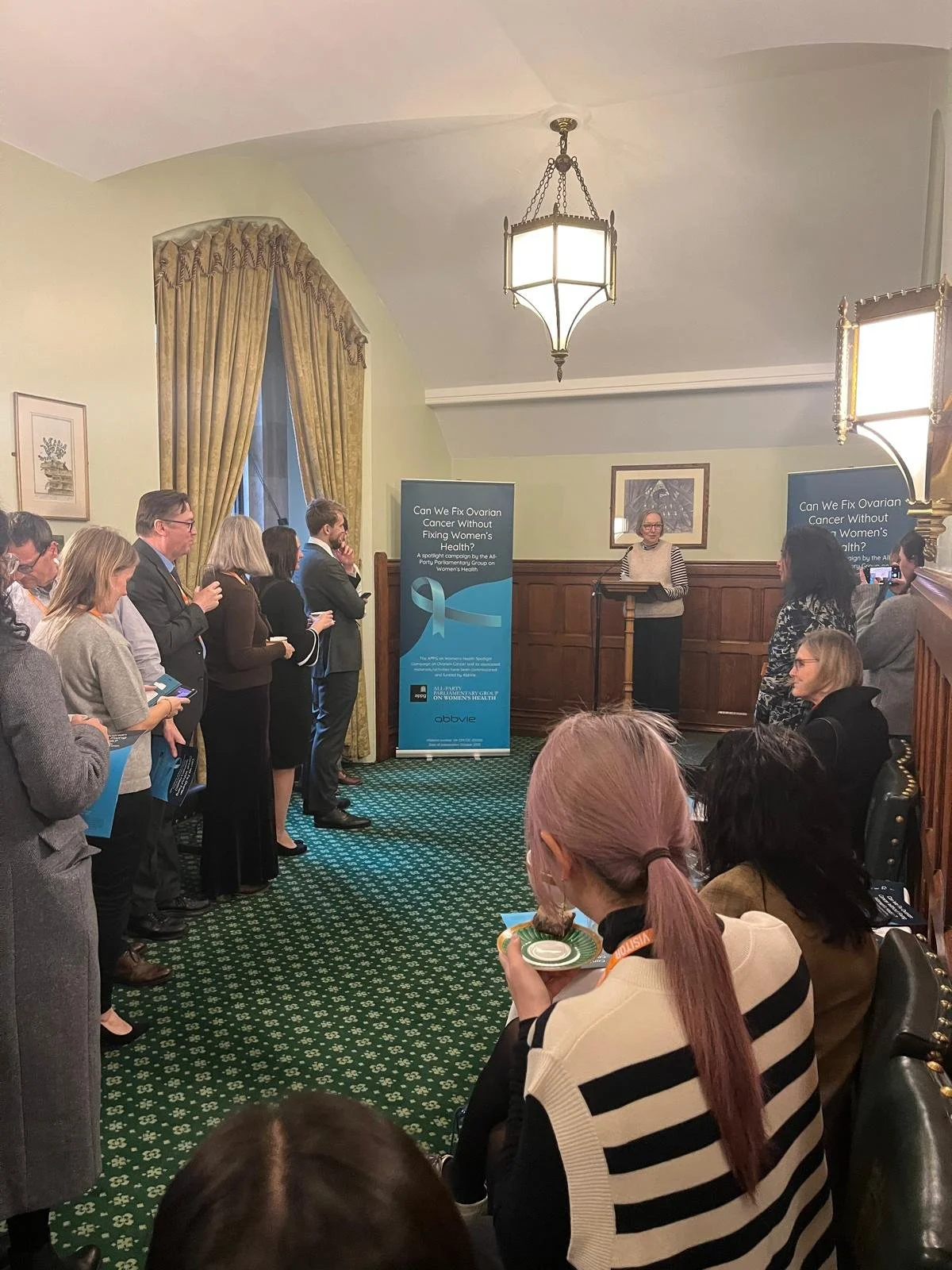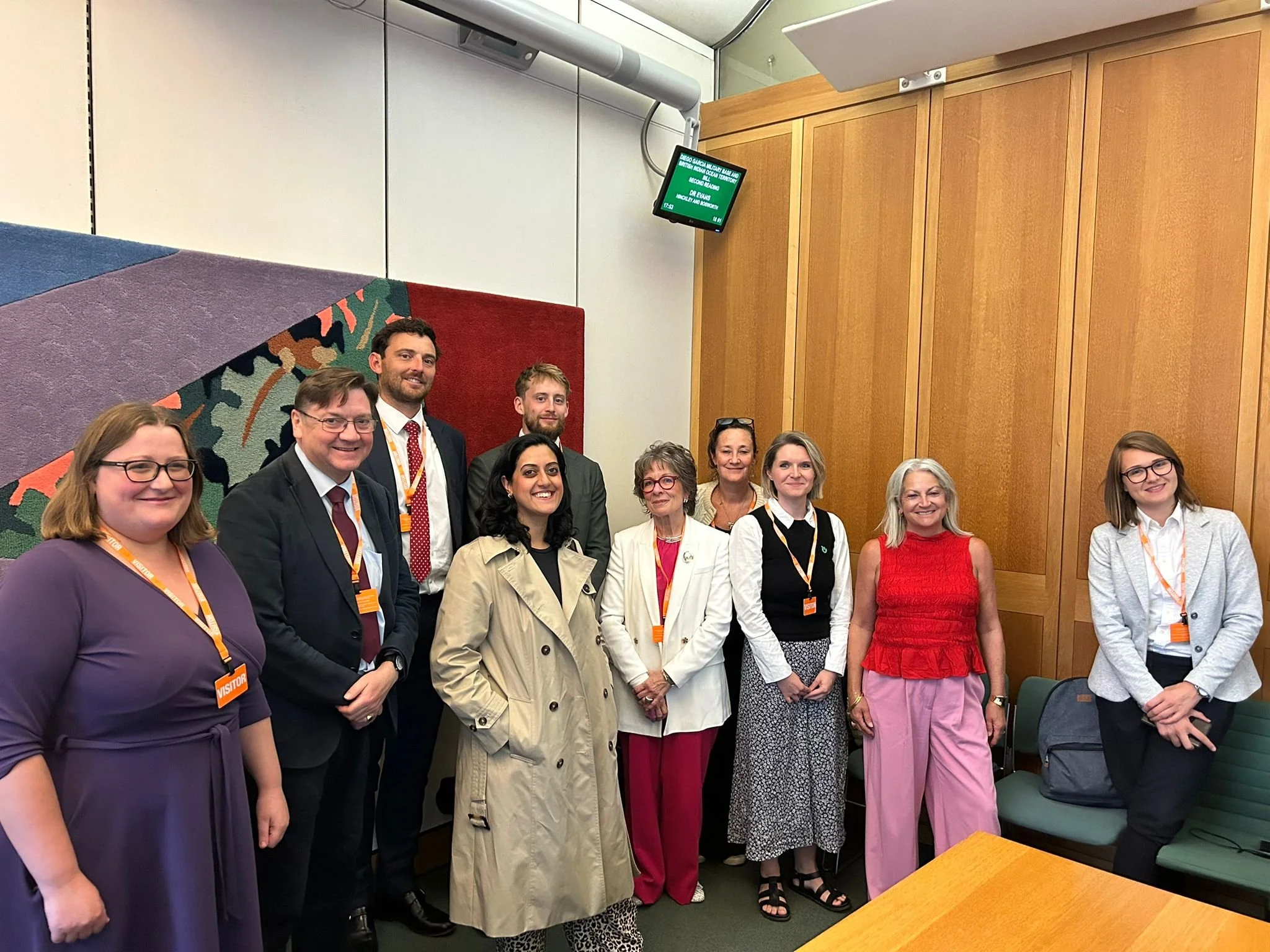TFor the first time ever, the All-Party Parliamentary Group on Women’s Health hosted a conference in the month of International Women’s Day on Thursday 22nd March 2018, to raise the profile of women’s health and champion surrounding issues within parliament and beyond.
The group was delighted by the turnout, with over 130 patients, patient groups, clinicians, policy makers, parliamentarians and interested stakeholders attending. Those present heard passionate speakers on the three panels:
Is this normal?
Rationing of women’s health services?
How are women treated in the NHS?
With discussion ranging from breaking the period “taboo”, encouraging women to feel empowered to speak up about health issues, the effects of rationing on women’s health specifically and what can be done to address this. Other discussions included how women are generally treated in the NHS, and the differing outcomes between men and women for certain conditions such as myocardial infarction and stroke.
The WHAPPG were delighted that these panels were joined by Dr Christian, Dr Ellie and Katie Piper who brought a wealth of experience the room, along with those patient and clinical speakers discussing their own experience.
We were pleased to be joined by Jackie Doyle-Price, the Minister with responsibility for Women’s Health and Matt Tagney from NHS England who each highlighted that women’s health is taking a prominent place on the agenda for the NHS and Government.
The productive discussion and contributions from the floor were all recognised by the group and the WHAPPG are keen to drive forward women’s health, ensure it remains on the agenda of decisions makers in the government and the NHS, and take forward and champion the specific issues raised at the conference. The group will be taking forward the issues discussed over the next year, and will look to repeat the conference to make sure more people can get involved and we can make a difference to more women’s lives.
To provide feedback on the conference, or to make suggestions for the future work of the group, please contact appgwh@mailpbconsulting.com.
Media
The conference received good coverage in the media, including:
The Sun - "BREAST FRIENDS Asda adds health warning to tampon packets urging all women to check for breast cancer – so here are the signs you need to know"
Independent - "Asda adds breast cancer advice to all own-brand sanitary products"
MailOnline - "Smiling Katie Piper shows off her svelte frame as she arrives at Westminster for the Women's Health Conference"
Blogs
Every girl deserves dignity, period - Manjit K. Gill, CEO & Founder, Binti International
Imagine having to insert a coin to dispense soap and toilet paper every time you used a public toilet. Sounds bizarre, right? For most of us, it is normal to access toiletpaper, soap and menstrual bins for free in public toilets. So, why is it different for menstrual products? Why do all women in the UK use toilet paper in between periods when they don’t have a pad with them? Surely menstrual products should be as available as toilet paper?
If all companies with budgets for toilet paper also bought pads, they could negotiate the pricing of the pads directly with the manufacturers and find a reduction in toilet paper. Having interacted with manufacturers of low cost pads, we know the pricing of the product can be as low as one pence. It will also help girls to stay in school eliminate poverty with periods and the responsibility of the dignity of women will be shared by all organisations who fundamentally must keep our girls in school. We can also put vending machines with pads costing no more than 10 pence each to help with sustainability of the campaign.
Join hands with Binti International in raising awareness on this issue. Every girl deserves dignity, period.
Huge under recognition for women with menstrual dysfunction - Dr Anne Connolly, Royal College of General Practitioners Clinical Champion for Women’s Health
Research commissioned by the Betty for Schools programme in 2017 found that 44% of girls "do not know what is happening to them the first time they have their period" and 60% of women "felt scared or embarrassed, and half did not feel confident enough to tell anyone else they had started their period." These statistics are endemic of a society where menstruation awareness is limited and menstrual health education is an afterthought.
There is a huge under recognition of the problems that women with menstrual dysfunction face, and for many women they do not even realise their periods are not "normal." This is a direct result of the lack of education for young women about what is normal, and how to get advice and support to help women in education and work.
The under recognition of the social, psychological and physical impact of heavy, irregular, or painful periods means that many women are compromised as they are not empowered to request support to help them attend school, college or work for several days and months a year.
In response to the increasing body of evidence around the need for better awareness of women's health conditions the Royal College of General Practitioners (RCGP) came together with the Royal College of Obstetricians and Gynaecologists, Endometriosis UK and the RCGP Patient and Carer's Participation Group to create a Clinical Spotlight Programme on Women's Health. This programme, which I am delighted to lead, puts the need for education at the very heart of its approach to women's health. This coalition aims to develop resources to support GP education on the issue of menstrual dysfunction, with the ambition of delivering earlier diagnosis and improved care.
The creation of this Clinical Spotlight Programme came, in part, as a result of the All-Party Parliamentary Group on Women's Health's enquiry into informed choice for women with fibroids and endometriosis. I am delighted to support the work of the WHAPPG and hope that, together, we can continue to raise the profile of these important, under recognised and under reported health concerns.
Raising awareness of domestic violence, modern slavery and FGM - Cecilia Anim CBE, President of the Royal College of Nursing
Domestic violence is complex and more common than many people think. It impacts on everyone in the family and wider social environment, personally and or professionally. Despite this, knowledge and understanding of the indicators for abusive behaviour in the home and of the actions required to be taken to safeguard and support victims/survivors varies across the UK. Nurses and midwives, are one of the key professional groups engaging with those most likely to be affected, the Royal College of Nursing (RCN) is committed to keeping this complex issue on the policy agenda, especially working to inform and support nurses and midwives to better understand their role and their responsibilities around this complex subject. We have developed a pocket guide on domestic abuse, to support nursing staff to both identify when these instances may be happening, and help them offer advice and help to victims.
The RCN support the newly announced legislation to make it easier for survivors of domestic violence to register to vote anonymously. We are working to create guidance for nurses and midwives to carry out this role as qualifying officer. We will be working with the UK Government to ensure that nursing staff are supported to implement this new legislation.
Modern slavery and sexual exploitation are equally complex safeguarding issues, which affect women’s and girls’ health. There is a need for nurses and healthcare professionals to feel confident to identify, discuss and support clients when this may be happening. Clients deserve reassurance, privacy and dignity to know that the issues raised will be taken forward. We must work to build a robust reporting mechanism immediately when these issues are raised, and access to refuge must be available to all.
Female Genital Mutilation (FGM) is child abuse and the practice is illegal in the UK, and another form of violence that needs to be tackled nationally and internationally. The hidden nature of the crime raises serious issues and concerns in relation to the safeguarding of girls and young women. The RCN have also produced a Pocket Guide to raise awareness among nurses, midwives and related health care personnel about FGM, and to provide insight and understanding of the socio-cultural, legal and health issues surrounding the practice.
The Pioneering work of The Royal College of Midwives - Clare Livingstone, Regional Officer & Professional Policy Advisor, The Royal College of Midwives
The Royal College of Midwives (RCM) is a professional organisation and trade union representing midwives and staff working across a range of maternity services.
Women’s health issues are at the heart of our work; promoting, supporting and influencing, collaborating and campaigning to continually raise standards of care and address health inequalities that exist in society.
We are recognised for our pioneering work in perinatal mental health, campaigning to eradicate female genital mutilation and in safeguarding women and their families.
RCM supports its members with continued learning and development resources, based around the women’s health agenda.
The RCM views pregnancy as a window of opportunity for public health promotion and improving outcomes across the population. Midwives are best placed to discuss issues such as smoking cessation and obesity as they are often the first point of contact women will have with our national health service having become pregnant and they are trusted to advise and support women.












